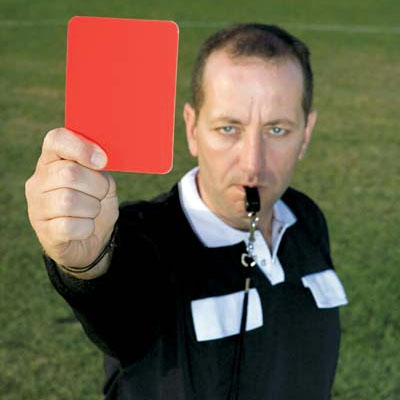40K Deep Thought: The Place of Judges?

I’ve been a few tournaments both big and small – and its the judges that most often make or break the day.
We all love to complain – we’re gamers. We complain about the rules. We complain about the dice. We complain about the missions. But how often do we think about the roles of judges, the one part of our hobby universe who if run well, is dedicated to keeping the hobby moving along smoothly and keeping it fair and fun.
I want to talk today about the three general types of judging I’ve seen out there in the wild, and get your feedback on what the community thinks we should see more of at our events.
4+ Judging
Under this model, players are encouraged to “work it out at the table”. Any rules disputes are to be settled via the old 4+ rule, and only the most obvious of rules questions are answered by a judge. The philosophy is “keep it at the table” and in general a desire for staff to not meddle in player affairs.
Oracle of Delphi Judging
Under this model, there are knowledgable judges available, usually at a central location, who make themselves available to walkups during the event. You will get correct and final answers at that location, but players will need to stop their game, and plead thier case, and recieve a decision before returning to the table. The philosophy is one of “let the players work out the small stuff” while ensuring quality judging of key problems major enough for a player to stop his/her game over.
Walkabout Judging
This model is based on the referee model in professional sports. Judges are assigned to walk the tables, looking for issues and problem players. They will hover around obvious problem tables, or key top tables. Answers are available at all times, and the judges can even be flagged down to assist in things such as moving models under a players direction in the case of slow games, or very junior players with larger modelcount forces. This model’s philosophy is one of being a “well oiled machine” that not only addresses issues passively, but fills a larger roll of keeping problem players under scrutiny, while assisting in moving the event along smoothly.
In general, you tend to see 4+ judging as a stopgap when there are little to no super knowlegable rules savants around to fill the judge role, and at very small events. The Oracle and Walkabout philosophies are usually seen at larger events with a deeper depth of quality judges. Still, the walkabout method is more mentally intensive and requires more inter judge communication and management. The Oracle model is more traditional, and easier to implement for TOs. Each of these models additionally provides different levels of either support and constraint both new players, and those looking to gain unfair advantage.
What do you want to see at your next event, and which method do you think is best for us as a playerbase to push our Tournament Organizers for? Also, lets hear all your judging horror stories – we love those!


